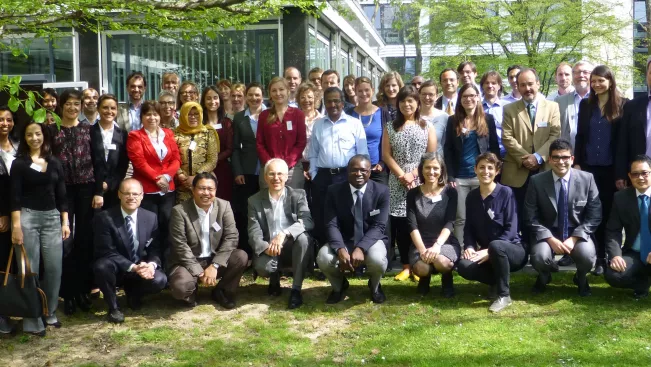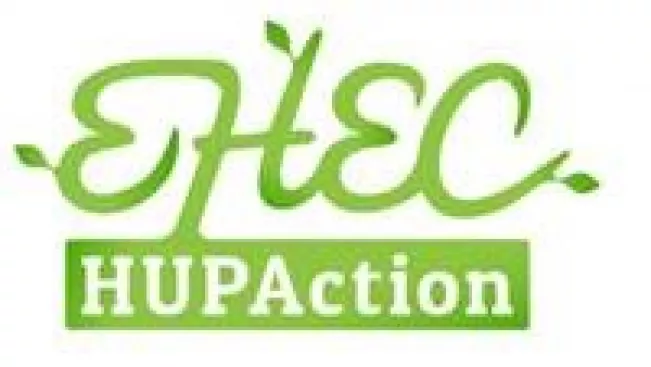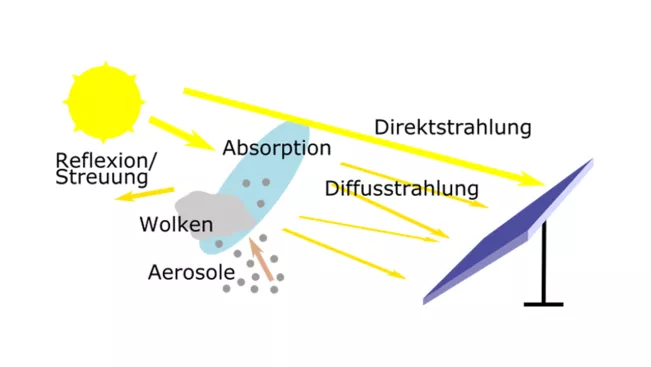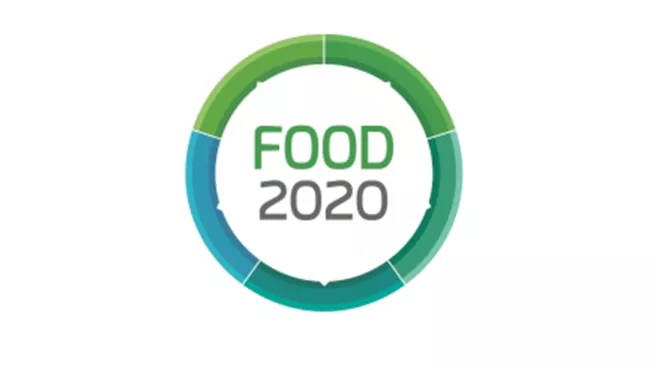Research at the university
Research Database: Projects
Forschungsprojekte (197)
The project is based on the idea of a quick retrofit for conventional cars and buses, in order to reduce fuel consumption, related costs and CO2 emissions by using photovoltaic panels on the roof which are connected to the existing vehicle power supply network. This reduces the load on the alternator and leads to a reduction in fuel consumption. Tasks The main task of this project is to find out if the suggested PV system is fitting sustainability criteria, if it is applicable, effective and profitable.
Project management at the H-BRS
Prof. Dr Stefanie MeilingerThe international workshop "Measuring the social, economic and political effects of social protection: How to overcome the challenges?" brings together policy makers and experts from academia, development practitioners and public administrators to discuss methodological, operational and strategic challenges of measuring the effectiveness of policy interventions and to develop solutions.
Project management at the H-BRS
Prof. Dr Katja BenderThe research project investigates determinants of international policy diffusion as well as the role of transgovernmental policy networks for policy change in the field of social protection in developing and emerging countries. Research Approach Policy diffusion and policy transfer are research programs that deal with the international spread of policies. Different mechanisms, among them policy learning, have been identified by related research to explain policy diffusion.
Project management at the H-BRS
Prof. Dr Katja BenderAgainst the backdrop of the concretization of the 2030 Agenda adopted in September and the universally applicable Sustainable Development Goals (SDGs) anchored therein, solution strategies for the greater intensification of interdisciplinary cooperation between different scientific disciplines and the necessary internationalization of research will be developed in a dialogue between representatives of development and sustainability research, research policy and research funding institutions.
Project management at the H-BRS
Prof. Dr Katja BenderSocial protection is increasingly seen as a relevant tool for bringing about inclusive growth. This is in line with the broader idea of comprehensive development, which considers social inequality and sustainability issues as priority concerns, and reflects a significant shift in perspective. Good health is an important component of comprehensive growth. Poverty and ill health are highly correlated and mutually reinforcing: high direct and indirect costs of access to treatment lead to poverty or exacerbate existing poverty.
Project management at the H-BRS
Prof. Dr Katja BenderIn the e-H@C HUPAction project, a system is being developed and tested to improve the cross-border exchange of information between authorities and companies in the vegetable value chain, using the Euregio Rhine-Waal as an example. The focus is on the rapid detection and monitoring of health risks and the control of hazards posed by enterohemorrhagic Escherichia coli (EHEC) bacteria.
Project management at the H-BRS
Prof. Dr Wiltrud Terlau Prof. Dr Martin HamerGlobal energy demand is increasing year by year. On the one hand, this is driven by population growth and, on the other, by the increasing demand for technical equipment, travel/transport and consumer goods.
Project management at the H-BRS
Prof. Dr Stefanie MeilingerIn and around Bonn, there is a unique concentration of local, regional, national and international actors in the field of biodiversity research and conservation. They include various institutions such as international organizations, relevant university institutes and facilities, several federal ministries and subordinate authorities, in addition to numerous other important actors of different stripes. With almost 60 member institutions from the Bonn/Rhein-Sieg region, BION bundles extensive knowledge and know-how in the field of biodiversity.
Project management at the H-BRS
Prof. Dr Wiltrud TerlauThe Food 2020 project is all about the German-Dutch border region, the center of the European food industry. Through the project, small and medium-sized enterprises (SMEs) in the food industry in the border region receive financial and technical support as well as innovative ideas from research institutions.
Project management at the H-BRS
Prof. Dr Martin HamerFood is increasingly available at lower prices in Germany. As a result, large sections of the population in Germany can now financially afford to eat meat every day, for example. However, the production, trade and consumption of meat are not free from criticism. Companies are responding to this with various means of improved communication; such as information offers or quality seals and labels for the consideration of animal welfare.
Project management at the H-BRS
Prof. Dr Wiltrud TerlauContact Points
Centre for Science and Technology Transfer (ZWT)
Room
F 405
Vice President Research and Transfer
Campus
Sankt Augustin





